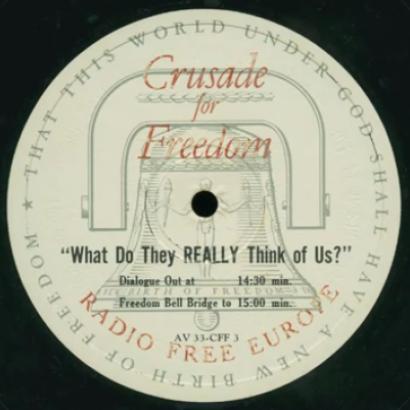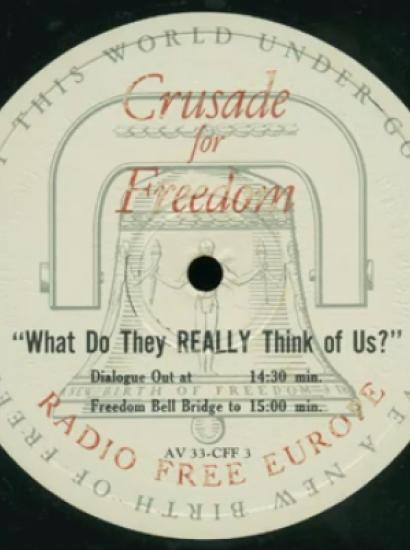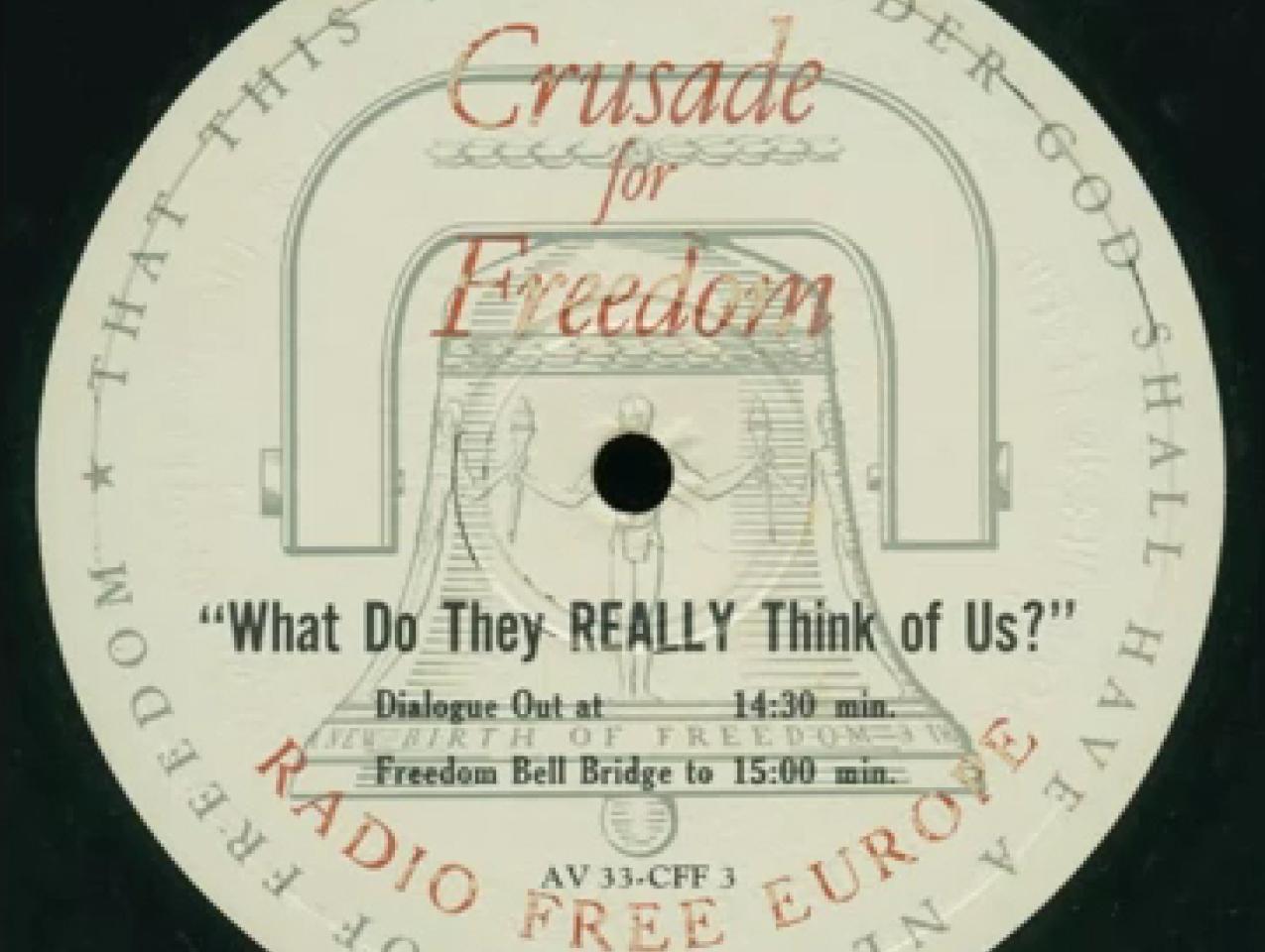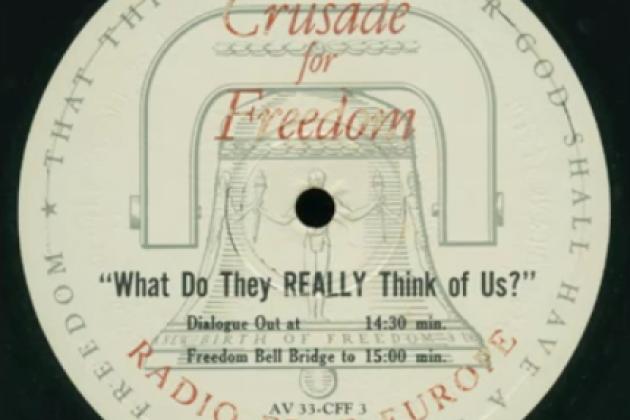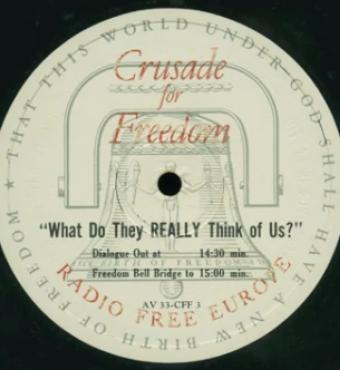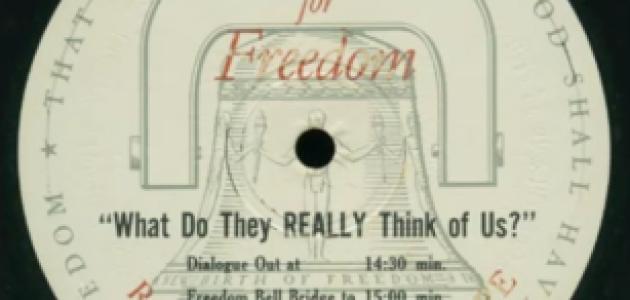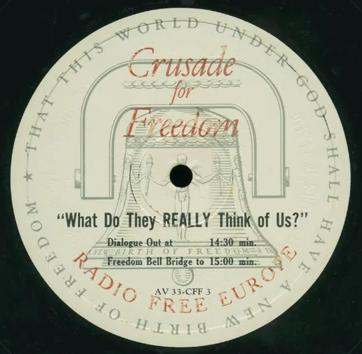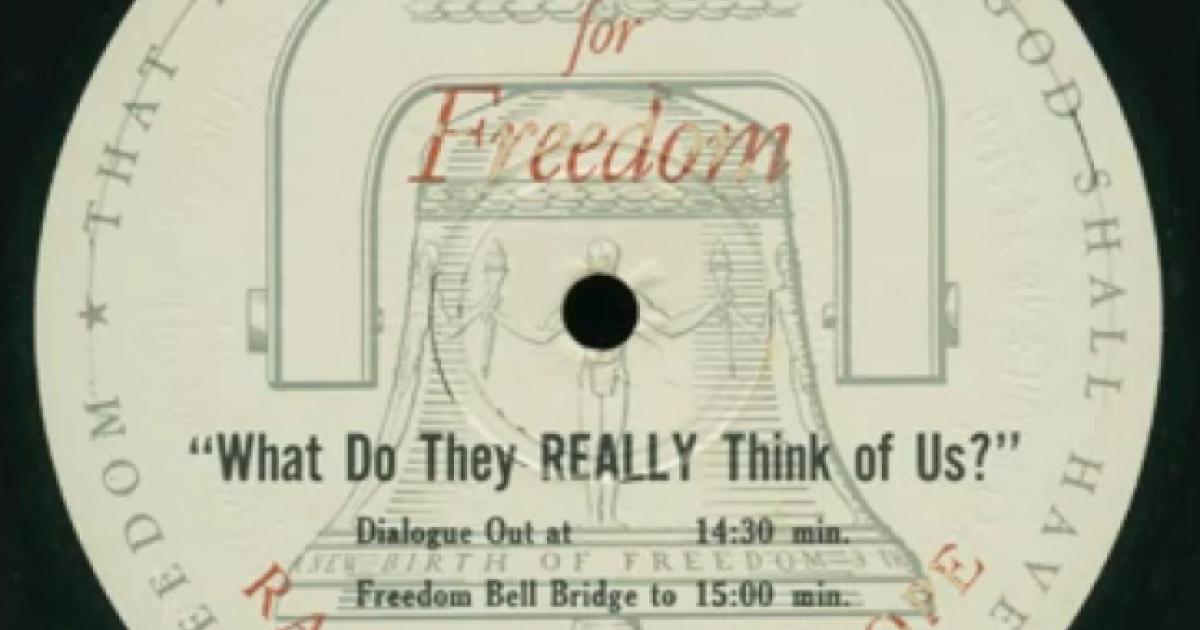
The Hoover Archives recently uploaded to YouTube two Crusade for Freedom sound recordings that offer insight into international relations in 1951. Crusade for Freedom prepared the programs to raise funds for Radio Free Europe (RFE) and Radio Liberty (RL).
Narrated by NBC commentator Ben Grauer, “What Do They REALLY Think of Us?” detailed how Eastern Europeans saw the United States of America. It included those that despised America, displaced persons who praised America for bringing the message of freedom to those behind the Iron Curtain, and what RFE was doing to change the negative perceptions in favor of America. Lucius D. Clay, national chairman of the Crusade for Freedom, praised the Radio in the American Sector in Berlin as a model for RFE and appealed for contributions to buy additional transmitters. The underlying thesis was that communism cannot stand if the masses of the countries reject it.
The Radio Free Europe Story explained to an American audience the activities of RFE. The breadth of the radio programming was wide, featuring messages from expatriates, popular music, news reports, religious programs, and a program naming alleged regime collaborators and spies. RFE director Robert Lang described broadcasts to Czechoslovakia; messages from Free Europe Committee chair C. D. Jackson, and RFE Czechoslovak Service chief Ferdinand Peroutka are also heard. The recording ends with the Czechoslovak national anthem and ringing of the Freedom Bell.
From 1951 to today, the opinions of Europeans and Americans about each other continue to differ. Russell Berman, the Walter A. Haas Professor in the Humanities at Stanford University and a senior fellow at the Hoover Institution, looks at the contemporary European anti-Americanism in his book titled Anti-Americanism in Europe: A Cultural Problem. Many Europeans viewed the United States in a negative light after the September 11 terrorist attacks and felt that Americans should change their ways without showing hostility and aggression. In a Defining Ideas article “Ugly America,” Berman explicates the “three expressions of anti-Americanism—aristocratic, anticapitalist, and internationalist-secular—exist[ing] in Europe, [but] not defining all European views of the United States.” Hoover fellow Dennis Bark explores the relationship between Americans and Europeans in his book Americans and Europeans—Dancing in the Dark: On Our Differences and Affinities, Our Interests, and Our Habits of Life, in which he points out that the essential difference between us is that America was built from the ground up, whereas Europe was built from the top down.







